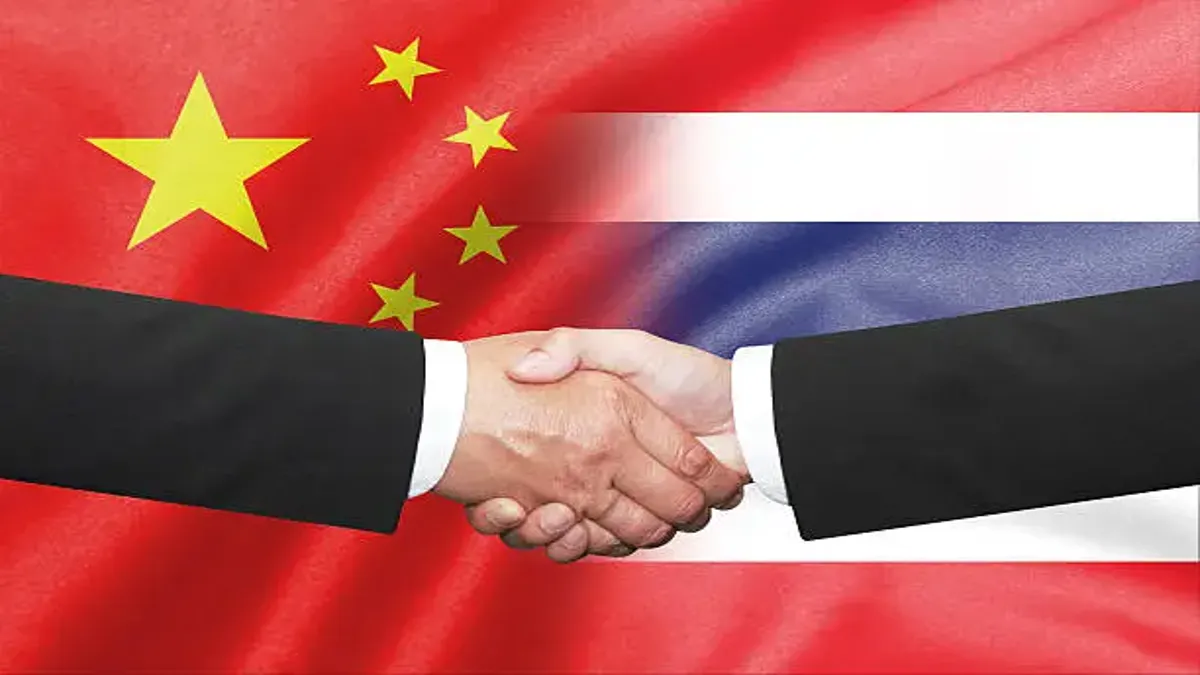Trade between Thailand and China has always been dynamic, and in recent years, it has grown into one of the most important partnerships in Asia. With China being Thailand’s largest trading partner and Thailand serving as a gateway to Southeast Asia, the future of their trade relations looks promising. For Thai importers, this means more opportunities to source products, strengthen supply chains, and enter profitable markets.
In this blog, we’ll explore how Thailand-China trade relations are evolving, what import opportunities are emerging, and how platforms like 1688shipping.com can simplify the process for Thai businesses.
Thailand-China Trade at a Glance
Over the past decade, trade between Thailand and China has expanded rapidly. According to regional trade data, China is consistently ranked as Thailand’s top trading partner, with billions of dollars exchanged annually in imports and exports.
- China exports to Thailand: electronics, machinery, textiles, plastics, and consumer goods.
- Thailand exports to China: agricultural products (rice, rubber, fruits), automotive parts, and petrochemicals.
This mutual exchange has created a balanced, interdependent relationship. But as both economies adapt to global challenges and digital transformation, new opportunities are opening up for Thai importers.
The Driving Forces Behind Future Trade Relations
The future of Thailand-China trade is being shaped by several key factors:
1. The Belt and Road Initiative (BRI)
China’s Belt and Road Initiative is designed to improve connectivity and infrastructure across Asia, and Thailand is a central player in this network. The planned high-speed rail connecting Thailand with China is expected to reduce logistics costs and delivery times significantly, making imports more efficient.
2. RCEP (Regional Comprehensive Economic Partnership)
Both Thailand and China are part of RCEP, the world’s largest free trade agreement. This agreement reduces tariffs, streamlines customs procedures, and makes it easier for Thai businesses to import goods from China at competitive prices.
3. Digital Transformation and E-commerce Growth
Cross-border e-commerce is booming. Thai businesses can now source directly from Chinese manufacturers through online platforms, eliminating intermediaries and reducing costs. Websites like 1688shipping.com make it even simpler by offering shipping, consolidation, and customs support tailored for Thai importers.
4. Shifts in Consumer Demand
Thai consumers are increasingly seeking affordable yet high-quality products—from electronics and gadgets to fashion and lifestyle goods. Chinese suppliers, with their ability to scale production quickly, are well-positioned to meet these needs.
Emerging Import Opportunities for Thai Businesses
So, what specific opportunities should Thai importers watch out for? Let’s break it down:
1. Electronics and Smart Devices
China dominates the global electronics market. From smartphones and smartwatches to household gadgets, Chinese suppliers offer cutting-edge products at competitive prices. With Thailand’s growing tech-savvy population, demand is set to rise.
2. Fashion and Apparel
Fast fashion remains a booming industry. Chinese manufacturers offer a wide range of clothing, accessories, and footwear, making it easier for Thai retailers to keep up with changing trends while keeping costs low.
3. Health and Wellness Products
The pandemic has boosted demand for supplements, personal care, and fitness-related products. Importing from China gives Thai businesses access to affordable, high-quality goods in this fast-growing sector.
4. Eco-Friendly and Sustainable Goods
Both Thai and Chinese consumers are becoming more environmentally conscious. Products like reusable packaging, biodegradable tableware, and eco-friendly textiles are gaining traction, creating a profitable niche for importers.
5. Agricultural Machinery and Tools
Thailand’s strong agricultural sector continues to modernize. Importing Chinese machinery and tools at affordable prices helps Thai farmers boost productivity and efficiency.
Challenges to Consider
While the opportunities are huge, Thai importers should also be aware of some challenges:
- Quality Control: Ensuring products meet Thai standards is crucial. Always work with reliable suppliers and request samples before large orders.
- Logistics and Shipping: Although infrastructure is improving, shipping delays or high costs can affect profitability. Platforms like 1688shipping.com help overcome these hurdles.
- Regulations and Compliance: Staying updated on Thai import regulations, customs duties, and certifications is key to avoiding penalties.
- Competition: With more Thai businesses importing from China, standing out requires strong branding, customer service, and niche selection.
The Role of 1688shipping.com in Simplifying Imports
For Thai importers looking to tap into the growing opportunities, navigating China’s massive marketplace can feel overwhelming. This is where 1688shipping.com becomes invaluable.
Here’s how it helps:
- Direct Sourcing: Access suppliers on China’s 1688.com platform, which offers wholesale prices even lower than many international sites.
- Shipping Solutions: Handle air, sea, and land shipping with options that fit your budget and timelines.
- Consolidation Services: Combine orders from multiple suppliers to save on shipping costs.
- Customs Assistance: Manage clearance procedures smoothly, avoiding costly mistakes.
- Localized Support: Services are tailored specifically for Thai businesses, ensuring language, payment, and cultural differences don’t become barriers.
By partnering with a platform like 1688shipping.com, Thai businesses can reduce risk, cut costs, and focus on scaling their operations.
Looking Ahead: A Bright Future
As China continues to invest in global trade and Thailand strengthens its role as a regional hub, the outlook for Thailand-China trade relations is bright. Import opportunities are only set to grow, particularly in e-commerce, technology, and sustainable goods.
For Thai importers, the message is clear: the time to act is now. By understanding market trends, building strong supplier relationships, and leveraging tools like 1688shipping.com, businesses can position themselves at the forefront of this evolving trade landscape.
Final Thoughts
The future of Thailand-China trade relations isn’t just about government policies and global agreements—it’s about the everyday opportunities available to Thai businesses. With the right strategy, importers can take advantage of affordable sourcing, booming consumer demand, and evolving trade frameworks.
Platforms like 1688shipping make it possible for even small businesses to enter the market with confidence. By focusing on reliability, efficiency, and customer needs, Thai importers can unlock long-term success in this exciting trade partnership.

